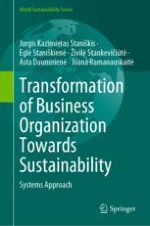We have entered a new era where business, technologies, communities, and even pandemic deceases cross borders with unprecedented speed and intensity. 2030 Agenda and 17 SDGs reflect the global community's high expectations of finally reversing the destruction of our natural and social habits, and achieving a more balanced and equitable pathways toward well-being of all. However, despite the initial efforts, the world is not on track to achieving the most of the 169 targets that comprise the goals. It is evident that we have a system problem, so we need a system solution. Authors presented a hierarchical system consisting of two-level management systems: first level—unsustainability reduction systems and second level—control system for transformations toward sustainability. The book clearly shows that implementation of systems for unsustainability reduction and for transformations toward sustainability is possible, and that sufficient knowledge is available to get started. It is designed for researchers, practitioners, and politicians.
